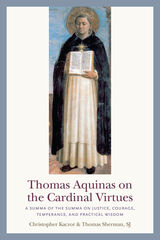
This fascinating examination of the development of virtue ethics in the early stages of western civilization deals with a wide range of philosophers and schools of philosophy—from Socrates and the Stoics to Plato, Aristotle, and the Epicureans, among others. This introduction examines those human attributes that we have come to know as the "stuff" of virtue: desire, happiness, the "good," character, the role of pride, prudence, and wisdom, and links them to more current or modern conceptions and controversies.
The tension between viewing ethics and morality as fundamentally religious or as fundamentally rational still runs deep in our culture. A second tension centers on whether we view morality primarily in terms of our obligations or primarily in terms of our desires for what is good. The Greek term arete, which we generally translate as "virtue," can also be translated as "excellence." Arete embraced both intellectual and moral excellence as well as human creations and achievements. Useful, certainly, for classrooms, Virtue Ethics is also for anyone interested in the fundamental question Socrates posed, "What kind of life is worth living?"


The first examination of predictive technology from the perspective of Catholic theology
Probabilistic predictions of future risk govern much of society. In business and politics alike, institutional structures manage risk by controlling the behavior of consumers and citizens. New technologies comb through past data to predict and shape future action. Choosing between possible future paths can cause anxiety as every decision becomes a calculation to achieve the most optimal outcome.
Tomorrow’s Troubles is the first book to use virtue ethics to analyze these pressing issues. Paul Scherz uses a theological analysis of risk and practical reason to show how risk-based decision theory reorients our relationships to the future through knowledge of possible dangers and foregone opportunities—and fosters a deceptive hope for total security. Scherz presents this view of temporality as problematic because it encourages a desire for stability through one’s own efforts instead of reliance on God. He also argues that the largest problem with predictive models is that they do not address individual reason and free will. Instead of dwelling on a future, we cannot control, we can use our past experiences and the Christian tradition to focus on discerning God’s will in the present.
Tomorrow’s Troubles offers a thoughtful new framework that will help Christians benefit from the positive aspects of predictive technologies while recognizing God’s role in our lives and our futures.
READERS
Browse our collection.
PUBLISHERS
See BiblioVault's publisher services.
STUDENT SERVICES
Files for college accessibility offices.
UChicago Accessibility Resources
home | accessibility | search | about | contact us
BiblioVault ® 2001 - 2024
The University of Chicago Press









